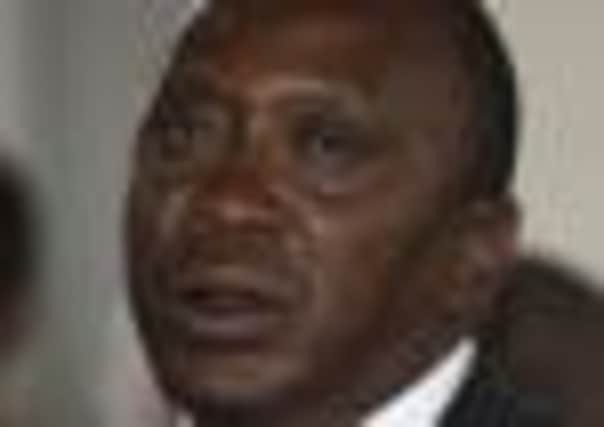Legal challenge to Kenya election result


Prime minister Raila Odinga’s petition comes a week after Kenya’s election commission declared Uhuru Kenyatta, 51 – the son of Kenya’s founding father, Jomo – the winner of the 4 March ballot.
Kenyatta won with 50.07 per cent of the vote, breaking the 50 per cent mark by about 8,000 votes from some 12.3 million cast.
Advertisement
Hide AdAdvertisement
Hide AdThis month’s election has been peaceful, unlike the disputed 2007 vote that sparked two months of violence in which more than 1,000 people died.
But in Nairobi police threw tear-gas canisters at Odinga supporters who gathered despite warnings from the authorities. Later, police lobbed more tear gas at demonstrators gathered in front of the supreme court building. “It’s everyone’s right to hold demonstrations, but police will stop demonstrations that may have ramifications on security,” said police spokesman Masoud Mwinyi.
“Police are taking precautionary measures to warn people to disperse, but if they don’t we will use minimum force. Their presence can create unnecessary tension. Already we are seeing pockets of volatility.”
The petition filed yesterday asks the court to set aside the announcement by the election commission on 9 March that Kenyatta and his running mate, William Ruto, had won the presidency and deputy presidency.
Odinga, 68, came second in the eight-candidate field with 43 per cent of the vote. He had hoped to keep Kenyatta under the 50 per cent mark and force a two-candidate run-off.
The Odinga petition claims the electoral register was altered and “mysteriously grew overnight by a large proportion” on the eve of the election. Votes cast exceeded the number of registered voters in several locations, it said, adding that the change in the number of registered voters was to allow the election commission to manipulate results.
The petition said the electronic voter identification and biometric voter registration systems were “so poorly selected, designed and implemented that they were destined to fail”, which forced the election commission to revert to a “discredited manual system” open to abuse and manipulation.
The election commission “failed to establish systems which are accurate, secure, verifiable, accountable and/or transparent and indeed declared results which in many instances had no relation to votes cast at the polling station,” the petition said.
Advertisement
Hide AdAdvertisement
Hide AdIf the court upholds Kenyatta’s win, he will become the second sitting president in Africa to face charges at the International Criminal Court at The Hague. He and Ruto both face charges related to having helped orchestrate the 2007-08 post-election violence. Both deny the charges. Ruto’s trial begins in late May; Kenyatta’s in July.
Despite the second straight disputed presidential election, Kenya has for the most part remained peaceful during the election period, though a slanging match between supporters of Kenyatta and Odinga have broken out online.
Odinga pleaded for calm during a week of news conferences in which his team has claimed the vote was rigged. He has said he will respect the supreme court’s ruling.